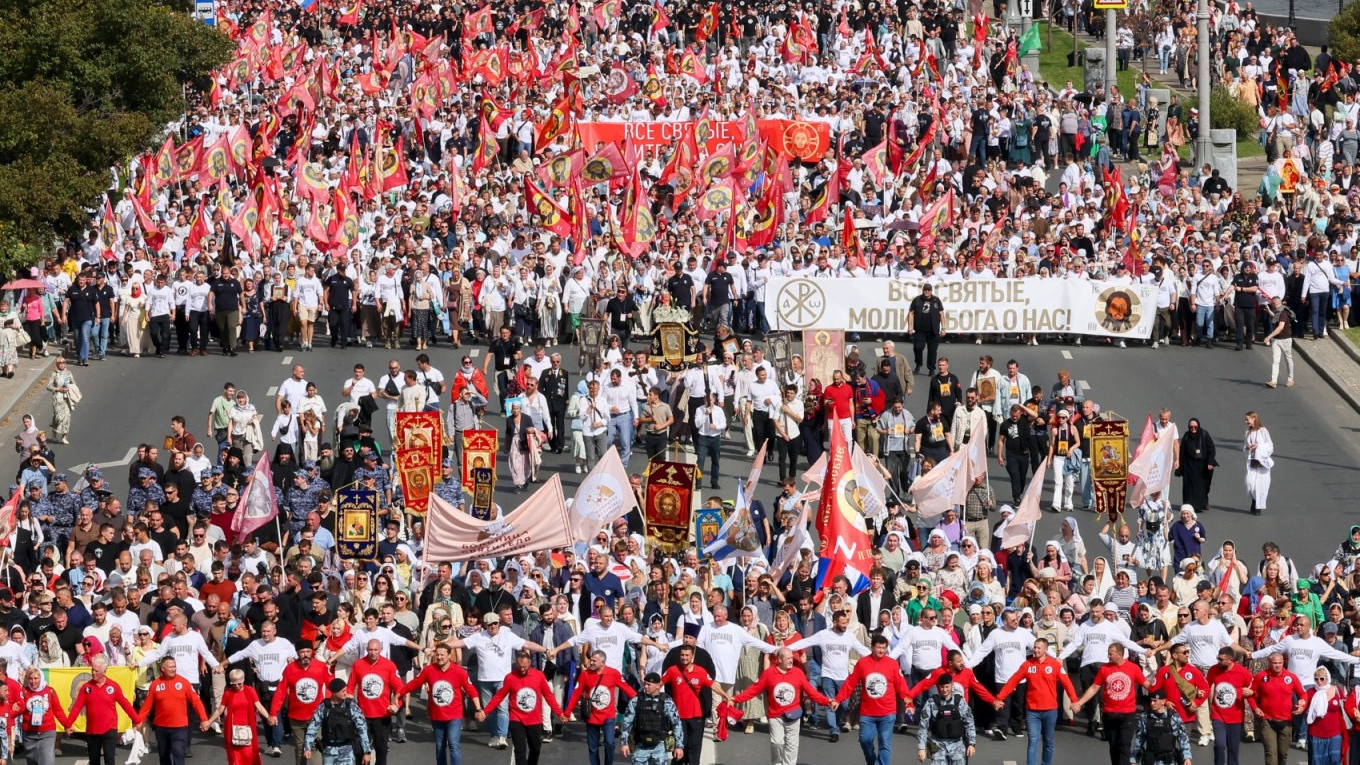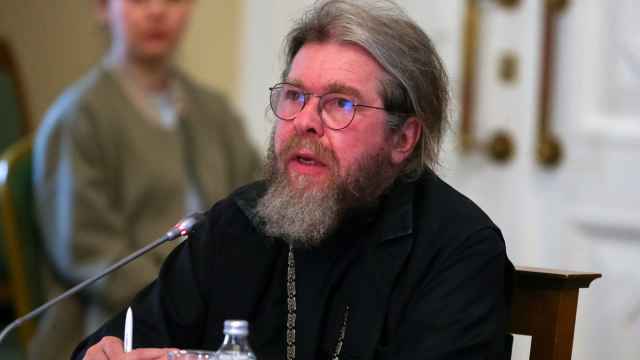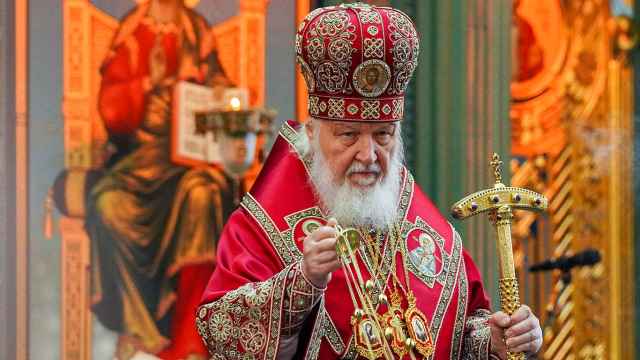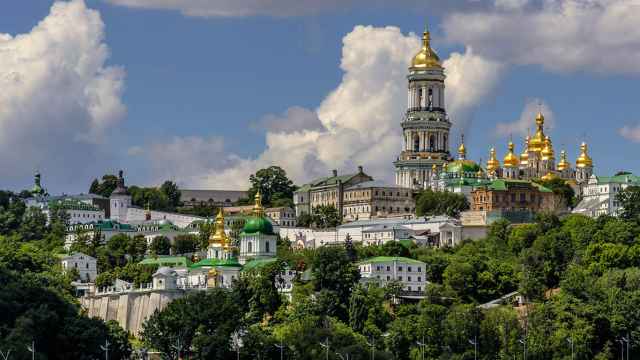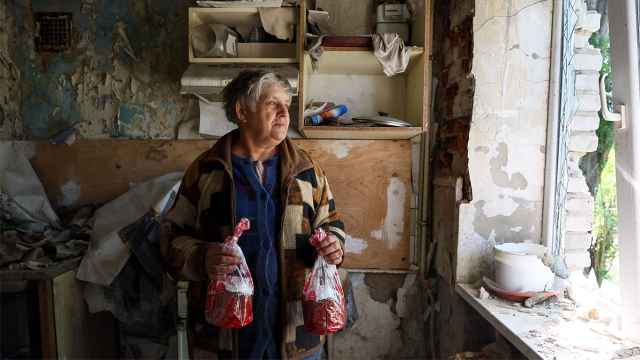The September 7 religious procession from Christ the Savior Cathedral to Novodevichy Convent, led by Patriarch Kirill, deserves scrutiny not for what it revealed about Orthodox faith, but for what it exposed about power in contemporary Russia.
While ostensibly a Church event honoring the Synaxis of the Saints of Moscow, its true significance lies in what it demonstrated to the Presidential Administration: the machinery of managed loyalty remains well-oiled and responsive.
First, consider the supreme irony: in a country where civil society has been systematically dismantled and the security apparatus maintains absolute control over public space, authorities not only permitted but orchestrated an event showcasing "spontaneous" mass participation.
Muscovites enjoyed walking through streets beneath banners bearing Christ's image, though one suspects many participants viewed the religious symbolism with indifference rather than devotion. The image represented something almost forgotten: a simple, human moment of collective joy, albeit marred by characteristic organizational absurdities, like the confiscation of water bottles. That citizens now celebrate the mere permission to walk together reveals the profound atomization of Russian society.
The procession also laid bare society's complete submission to both ecclesiastical and secular authority, at least among its moderately conservative segments. Church officials issued their customary directives, complete with "participation quotas" for each Moscow parish. Yet actual turnout surpassed these bureaucratic expectations. Evidently, Muscovites feel no particular antipathy toward an official Church that has evolved into a wholly-owned subsidiary of the state.
Furthermore, the Church's organizational efforts bore the revealing imprint of Archbishop Savva (Tutunov). His already formidable administrative influence is growing as he emerges from bureaucratic shadows to display his ambitions more openly. A dual citizen of France and Russia, the Archbishop has cultivated his position within Patriarch Kirill's inner circle through impeccable coordination with state structures. His rising prominence epitomizes the Church's transformation from spiritual institution to ecclesiastical department of state.
Aesthetically, the procession evoked a Soviet May Day parade: mechanically choreographed, creatively bankrupt, yet efficiently achieving its purpose.
The Russian Orthodox Church has never distinguished itself by its imagination. The state values compliance over creativity in its spiritual auxiliaries.
What unfolded on Moscow's streets was not an expression of faith but a demonstration of fidelity — not to the divine, but to the power vertical. The Church has perfected its role within the authoritarian apparatus, dispensing carefully measured doses of the sacred diluted with state propaganda: sufficient to pacify, insufficient to inspire. In this meticulously orchestrated "spontaneity," each actor knew their role: the state graciously permitted, the Church dutifully organized, the faithful obediently marched, and the security services silently supervised.
Moscow's September procession succeeded magnificently: not as a religious witness, but as political theater. It proved that in 2025, Russians remain ready to march on command, wave prescribed banners and perform loyalty on cue. The sole miracle was the efficiency with which authorities transmuted a religious observance into an oath of civil loyalty, and the eagerness with which participants embraced their assigned roles in this melancholy pageant.
A Message from The Moscow Times:
Dear readers,
We are facing unprecedented challenges. Russia's Prosecutor General's Office has designated The Moscow Times as an "undesirable" organization, criminalizing our work and putting our staff at risk of prosecution. This follows our earlier unjust labeling as a "foreign agent."
These actions are direct attempts to silence independent journalism in Russia. The authorities claim our work "discredits the decisions of the Russian leadership." We see things differently: we strive to provide accurate, unbiased reporting on Russia.
We, the journalists of The Moscow Times, refuse to be silenced. But to continue our work, we need your help.
Your support, no matter how small, makes a world of difference. If you can, please support us monthly starting from just $2. It's quick to set up, and every contribution makes a significant impact.
By supporting The Moscow Times, you're defending open, independent journalism in the face of repression. Thank you for standing with us.
Remind me later.


